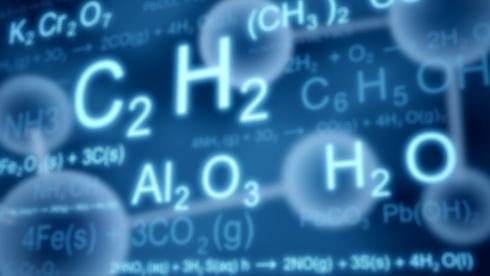Several climate policy initiatives are underway in the Washington State legislature, agencies, and courts. This alert summarizes these key developments—future alerts will provide greater detail and topical analysis.
1. Legislative and Ballot Initiatives.
In November of 2016, voters rejected a state carbon tax. Initiative 732, the Washington Carbon Emission Tax and Sales Tax Reduction, would have established a tax that started at $15/metric ton of carbon dioxide and increased over time. Following the defeat of I-732, Governor Inslee introduced his 2017-2019 budget, which includes a $25/ton carbon tax that would take effect May 1, 2018. In addition to the Governor’s budget proposal, the legislature is considering a carbon tax bill and a bill that would substantially tighten the state’s GHG reduction targets. Depending on the outcomes of this legislative session, environmental groups and climate policy experts may consider a future ballot initiative.
2. Science Assessments.
Responses to climate change are informed by science that assists decision-makers on the progression of climate change and its impacts. The Fourth National Climate Assessment is underway with public meetings in support of the Northwest Region chapter’s drafting. In addition, based on recent studies on existing climate change and its impacts and costs, the Washington State Department of Ecology (Ecology) recommended a substantial tightening of the state’s GHG reduction targets. This recommendation is noteworthy because the current GHG reduction targets were relied upon to support Ecology’s proposed Clean Air Rule.
3. Rule-making and Implementation.
On January 1, 2017, Ecology’s Clean Air Rule (CAR) went into effect. The CAR initially imposes emission limits on “covered parties” that Ecology deems responsible for at least 100,000 metric tons of carbon dioxide annually—including not only owners of stationary sources such as power plants and factories—but also entities that sell, distribute, or import petroleum and natural gas. Covered parties in these categories must reduce their emissions by 1.7%/year (until 2036) from an organization-specific baseline determined by Ecology.
The CAR provides special treatment to covered parties that are in sectors for which higher energy costs could result in competitive disadvantages. These “energy-intensive, trade-exposed industries” are not subject to program until 2020, and have emission reduction pathways set by a different methodology.
A covered party can comply with its emission limit by directly reducing its emissions or by purchasing and using credits (termed "ERUs") available from in-state mitigation projects, renewable energy credits, or allowances from certain out-of-state climate programs. Ecology is currently developing policies for developers of emission mitigation projects that want to generate ERUs.
4. Litigation.
a. Rule challenges: The new CAR was challenged through suits filed in state and federal court. The state court cases (Ass’n of Wash. Bus. v. Dep’t of Ecology and Avista Corp. v. Dep’t of Ecology) have been consolidated in Thurston County Superior Court, and the federal case (Avista Corp. v. Dep’t of Ecology) is stayed pending final adjudication of the state court matter. The state case includes allegations that the CAR exceeds Ecology’s authority under the Washington Clean Air Act because it regulates natural gas and petroleum distributors that are not “sources” of emissions in the meaning of the statute.
b. Citizen Suits and Children’s Lawsuit: A group of eight Washington children brought suit against Ecology for the agency’s failure to regulate carbon dioxide emissions and for failing to protect the children from climate change impacts. In 2015, the trial court held that climate change affects public trust resources in the state, but that the state was fulfilling its public trust obligations by engaging in the rulemaking. This rulemaking ultimately resulted in adoption of the CAR and the case is now on appeal regarding whether Ecology’s finalization of the CAR resolves all claims. However, the parties continue to make arguments to the trial court regarding whether the children should be permitted to amend their complaint so that they “can show evidence and argue that their government has failed and continues to fail to protect them from global warming.” (Foster v. Dep’t of Ecology, No. 14-2-25295-1 SEA and COA 75374-6-I.)
5. State Hearings Boards and Local Hearing Examiners.
State and local agencies are exploring their authority to control GHG emissions and impose mitigation for climate impacts. For example, the Washington Growth Management Act and the Shoreline Management Act contain provisions requiring agencies to consider the public interest and protection of the environment when implementing these statutes.
In furtherance of this general mandate, agencies and local governments might conduct their own analyses of GHG emissions and climate impacts, or require permit applicants to do so to satisfy these generalized permit criteria, and might claim authority to impose mitigation outside the specific scope of the state agency rules described above.
Appeals challenging agency decisions under those statutes are heard by the Growth Management Hearings Board, Shoreline Hearings Board, and Pollution Control Hearings Board, all housed in the state’s Environmental Hearings Office. These boards are becoming a forum for arguments regarding authority to impose GHG limitations or mitigation, and the adequacy of the underlying analysis under the State Environmental Policy Act.
In addition, local government codes sometimes contain provisions requiring consideration of GHG emissions and provide guidelines for calculations of emissions and impacts. Local land use decisions applying those provisions are subject to review before local hearing examiners, potentially subjecting matters in those venues to similar climate change and GHG arguments and challenges. This body of local decisions and appellate review is just beginning to take shape and has the potential to establish precedent for climate impact review and mitigation throughout the state.
6. SEPA Guidance.
The State Environmental Policy Act (SEPA) directs local and state agencies to identify and evaluate the environmental impacts of their actions. Unless an action is “categorically exempt,” SEPA review is triggered when a proposal requires a governmental agency to make a decision or fund an action that may significantly affect the quality of the environment.
In 2011, Ecology, as the lead agency, issued agency guidance on consideration of climate change under SEPA. Other SEPA lead agencies have followed Ecology’s guidance. In late 2016, Ecology removed the guidance from its website and indicated it (1) had begun planning its first periodic update of the guidance, and (2) is gathering information about new methods that local, state, and federal agencies are using to evaluate GHG emissions and climate change impacts.
In the meantime, agencies have been requiring such information from project proponents. SEPA determinations and related documents have been subject to challenge and appeal. There is growing Washington case law on the treatment of GHG emissions and the impact of climate change.
7. Adaptation and Increasing Resilience to Climate Change Impacts.
Recognizing Washington’s vulnerability to climate impacts, the state published the Washington State Integrated Climate Change Response Strategy to help prepare for climate change impacts and protect Washington’s communities, natural resources, and economy from the impacts of climate change. Throughout Washington, city and county officials, Tribal leaders, and other stakeholders are planning for more climate-resilient communities. For example, the City of Olympia is “developing a Sea Level Response Plan that will balance risks, uncertainty, and both private and public costs.”







 />i
/>i

